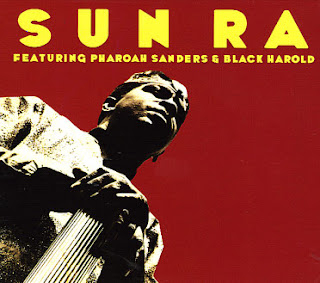Ellington Uptown
Recording Date:
December 7, 1951 tk 4
February 29, 1952 tk 1
June 30, 1952 tk 3
July 1, 1952 tk 2,5
Recording Date:
December 7, 1951 tk 4
February 29, 1952 tk 1
June 30, 1952 tk 3
July 1, 1952 tk 2,5
Personnel:
Duke Ellington P
Billy Strayhorn P
Cat Anderson TP
Shorty Baker TP
Willie Cook TP
Francis Williams TP tk4
Ray Nance TP
Quentin Jackson TB
Britt Woodman TB
Juan Tizol TB
Jimmy Hamilton CL,TS
Willie Smith AS
Johnny Hodges AS tk3
Hilton Jefferson AS
Russell Procope AS
Paul Gonsalves TS
Harry Carney BS
Fred Guy G
Oscar Pettiford B
Wendell Marshall B
Louis Bellson D
Betty Roche Vo tk3
Duke Ellington P
Billy Strayhorn P
Cat Anderson TP
Shorty Baker TP
Willie Cook TP
Francis Williams TP tk4
Ray Nance TP
Quentin Jackson TB
Britt Woodman TB
Juan Tizol TB
Jimmy Hamilton CL,TS
Willie Smith AS
Johnny Hodges AS tk3
Hilton Jefferson AS
Russell Procope AS
Paul Gonsalves TS
Harry Carney BS
Fred Guy G
Oscar Pettiford B
Wendell Marshall B
Louis Bellson D
Betty Roche Vo tk3
Although some historians have characterized the early '50s as Duke Ellington's "off period" (due to the defection of alto star Johnny Hodges), in reality, his 1951-1952 orchestra could hold its own against his best. This set has many classic moments, including Betty Roche's famous bebop vocal on "Take the 'A' Train," a version of "The Mooche" that contrasts the different clarinet styles of Russell Procope and Jimmy Hamilton, a hot "Perdido" that is highlighted by some great Clark Terry trumpet, Louie Bellson's drum solo on "Skin Deep," a definitive version of "The Harlem Suite," and the two-part "Controversial Suite," which contrasts New Orleans jazz with futuristic music worthy of Stan Kenton. One of the great Duke Ellington sets. The 2004 edition features gorgeously remastered sound, and adds no less than six bonus cuts: the enigmatic: "Dance"s 1-5," and the stunningly beautiful "I Feel Like Sunrise."

















